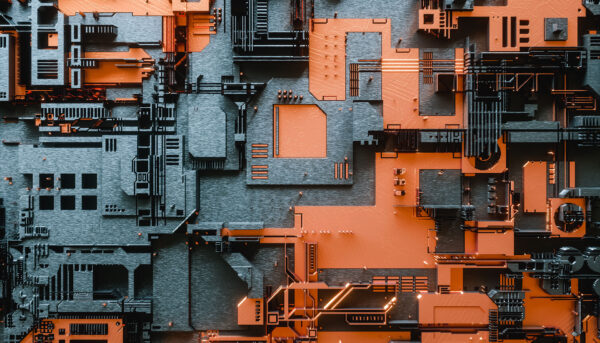On July 27, 2020, the Newfoundland and Labrador Supreme Court (the “Court”) released its decision in Great North Data Ltd., (Re),[1] where Justice Handrigan outlined principles for courts to consider when exercising their power under section 69.4 of the Bankruptcy and Insolvency Act, R.S.C. 1985, c. B-3 (the “BIA”) to issue a declaration lifting the stay of proceedings in actions against debtors.
This decision provides helpful guidance on lifting the automatic stay of proceedings imposed under s. 69.3 of the BIA to allow prior actions to proceed against a debtor. Justice Handrigan opens the door to recognizing clusters of further factors to consider when lifting a stay of proceedings beyond those already enumerated in the existing jurisprudence.
Factual Background
Bitmain Technologies Ltd (“Bitmain”), a developer and marketer of hardware to mine Bitcoin, entered into a colocation agreement (the “Agreement”) with Great North Data Ltd. (“GND”) for the storage of its hardware in GND warehouses. In accordance with the Agreement, Bitmain provided GND with a prepayment of $332,640 USD to be kept in trust for monthly payments, as well as large quantities of mining hardware to be stored. Contrary to the Agreement, GND allegedly used the prepayment for construction costs and sold most of the hardware to third parties.
Bitmain then brought an fraud action against GND and its CEO, James Goodwin (“Goodwin”), for civil fraud, theft, and intimidation claims, among others. The trial was scheduled to begin on March 23, 2020; however, GND and Goodwin filed an assignment in bankruptcy on November 22, 2019 and December 9, 2019 respectively. Under section 69.3 of the BIA, no creditor can commence any action or proceeding against a debtor for the recovery of a claim provable in bankruptcy. Accordingly, an automatic stay of proceedings was applied.
Under section 69.4 of the BIA, Bitmain applied to the Court seeking a declaration that section 69.3(1) of the BIA does not apply to the claim brought against GND. Section 69.4 provides that the Court can make such a declaration if the applicant shows that it is likely to be materially prejudiced by the automatic stay of proceedings or that it is inequitable to maintain the stay.
Determination of Whether the Stay Could be Lifted
As noted by Justice Handrigan, the Ontario Superior Court in Re Advocate Mines Ltd.[2]outlined five circumstances in which a Court may lift the stay of proceedings. These include:[3]
- Actions against the bankrupt for a debt to which a discharge would not be a defence;
- Actions in respect of a contingent or unliquidated debt, the proof of which and valuation has that degree of complexity which makes a summary procedure inappropriate;
- Actions in which the bankrupt is a necessary party for the complete adjudication of the matters at issue involving other parties;
- Actions brought to establish judgment against the bankrupt to enable the plaintiff to recover under a contract of insurance or indemnity or under compensatory legislation; and
- Actions in Ontario which, at the date of bankruptcy, have progressed to a point where logic dictates that the action be permitted to continue to judgment.
Following direction from the Ontario Superior Court, Bitmain argued that four of the five circumstances appropriate for lifting a stay were evident, as: [4]
- If GND was discharged in bankruptcy, they would not be released from the claim Bitmain held against it;
- Their claim against GND was too complex to be settled by summary procedure;
- GND and Goodwin were necessary parties to the consolidated action; and
- Bitmain had advanced its claim so far procedurally that it should not be denied judgment.
Takeaway
Engaging in a summary of existing case law, Justice Handrigan provided the below expansive principles relevant for courts determining whether they can exercise their discretionary power to lift a stay of proceedings under section 69.4:[5]
- The applicant must show either that the creditor would be materially prejudiced under the operation of the automatic stay OR that it would be equitable to lift the stay on some other grounds but need not show both;
- The creditor does not have to show that it has a prima facie case;
- Courts need only consider the merits of the proposed action to determine if there are sound reasons for lifting the stay;
- On a leave application, sound reasons must exist for relieving the automatic stay;
- While Bitmain relied on the circumstances enumerated in Re Advocate Mines, the list of five is non-exhaustive;
- If the creditor satisfies the court that one or more of the grounds referred to in Re Advocate Mines is present and that the creditor is likely to be materially prejudiced or that it is equitable on other grounds to make such a declaration, then the court will lift the stay of proceedings; and
- Fraud alleged by a creditor is a complex matter which should not ordinarily be dealt with on a summary basis and without a full hearing.
The Court assessed each of Bitmain’s claims in turn, ultimately granting a declaration lifting the stay of proceedings and halting the operation of section 69.3(1) of the BIA with respect to claims against Bitmain and Goodwin.
As a result of the use of money held in trust and selling of hardware, the Court posited that Bitmain held an arguable case against GND and Goodwin. Under section 178(1)(d) of the BIA,[6] neither GND nor Goodwin would be discharged in bankruptcy from any debt or liability. As Bitmain alleged fraud, a full hearing was the only process to properly adjudicate the claim as, in line with Re Taylor Ventures Ltd.[7], investigating fraud claims is a complex matter, involving a detailed examination of the relationship between Bitmain, GND, and the people involved. Goodwin and GND were both necessary parties, especially given Bitmain’s allegations of Goodwin’s actions and representations in the contractual relationship between GND and Bitmain. Lastly, the action was commenced nearly three years ago, thousands of documents had been disclosed, over 10 days of discoveries have been conducted, and both parties had made multiple court appearances. Justice Handrigan also considered the response from PricewaterhouseCoopers Inc., GND’s trustee in bankruptcy and receiver, noting that they acknowledged the validity of Bitmain’s motion, and differed in position only on the onus that a creditor had to meet to succeed in lifting a stay of proceedings.
The authors would like to thank Amanda Cutinha, summer student at Miller Thomson LLP, for her assistance on this article. If you have any questions on the above case comment, please contact a member of our Restructuring team.
[1] Great North Data Ltd, (Re), 2020 NLSC 105.
[2] Advocate Mines Ltd, Re, [1984] O.J. No 2330, 1984 CarswellOnt 156 (Sup Ct).
[3] Supra note 1 at para 7.
[4] Supra note 1 at para 21.
[5] Supra note 1 at para 11.
[6] Section 178(1)(d) provides that “An order of discharge does not release the bankrupt from any debt or liability arising out of fraud, embezzlement, misappropriation or defalcation while acting in a fiduciary capacity”.
[7] Taylor Ventures Ltd. (Re), 2002 BCSC 82 (BCSC).




